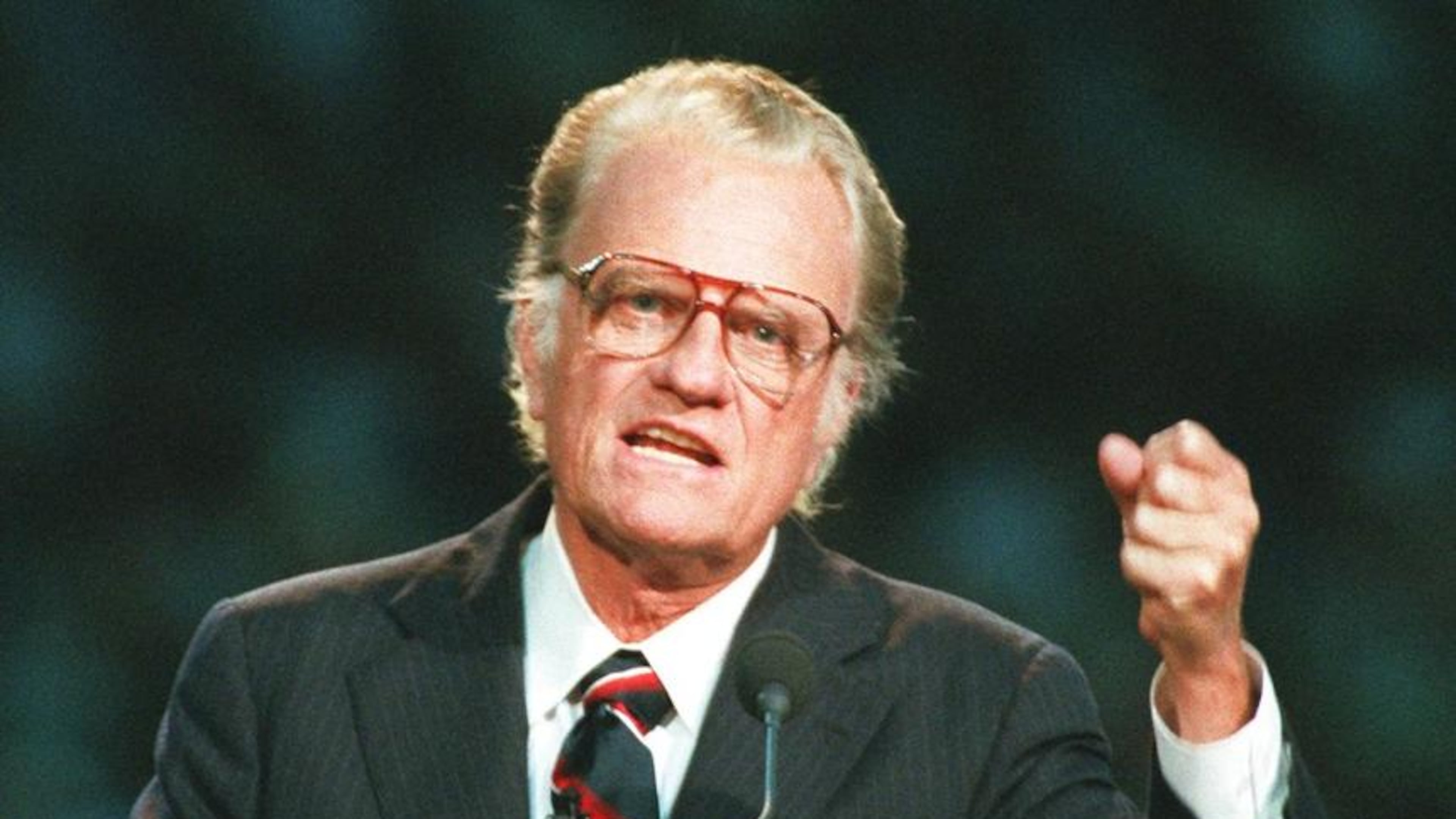How Rev. Billy Graham fought for Civil Rights

When the Rev. Billy Graham brought his large Crusade gatherings to the South in the 1950s, he was alarmed at what he saw: Ropes segregating white and black worshipers.
"I was appalled at it and decided I had to speak out on it," Graham says in a video discussing his work to advance Civil Rights. "I said, 'No more of this.' I went to the head usher and asked him if he would remove the ropes.'"
When the usher refused, Graham took the ropes down himself. The usher resigned in a huff, but Graham's stand led to a friendship with the Rev. Martin Luther King Jr.
"He practiced what he preached," the late Cliff Barrows, longtime music and program director for the Billy Graham Evangelistic Association, said in the video.
Rev. William Barber, head of the NAACP's North Carolina chapter, noted Graham's efforts to advance racial equality in remarks posted via Medium.
"Billy Graham inherited a faith in the American South that had accommodated itself to white supremacy, but he demonstrated a willingness to change and turn toward the truth," Barber wrote. "He helped to tear down walls of segregation, not build them up. One biographer noted after the bombing of the 16th Street Baptist Church in Birmingham in 1963, Graham told fellow evangelicals: 'We should have been leading the way to racial justice but we failed. Let’s confess it, let’s admit it, and let’s do something about it.'”
The Rev. Bernice King, CEO of the King Center in Atlanta, also was interviewed for the video.
"Both Dr. Graham and my father were trying to make the world a better place," she said in the clip. "They were different, obviously, in their style and their approach. But I think their heart and their goal was the same."
The Gospel Coalition noted Graham's devoted friendship with Rev. King in its piece highlighting interesting facts about the late spiritual leader:
Graham was opposed to racial intolerance on not only moral but also spiritual grounds.
"There is no excuse ever for hatred. There is no excuse, ever, for bigotry and intolerance and prejudice," he said in the video. "We are to love as God loves us."
Atlanta faith leaders were among the many offering words of tribute and consolation after the announcement that Graham had passed away at his Montreat, N.C. home.
Johnny Hunt, pastor of First Baptist Church of Woodstock, posted: "Only Heaven knows the INFLUENCE of this wonderful MAN OF GOD on our world. RIP dear brother."
Hunt, like Wright a former president of the Southern Baptist Convention, also said he had exchanged text messages with Graham's grandson, William Franklin Graham, known as Will, who serves as the Billy Graham Evangelical Association's vice president and associate evangelist.


